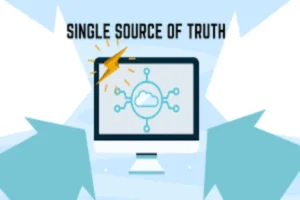Understanding MSME Loan Interest Rates and Business Loan Options in India

For Micro, Small, and Medium Enterprises (MSMEs), access to timely financing can mean the difference between stagnation and growth. As India’s entrepreneurial ecosystem thrives, more business owners are turning to financing solutions to support expansion, inventory management, and working capital needs. Among the most important factors influencing their borrowing decisions are MSME loan interest rates and the types of business loan available in the market.
What Are MSME Loans?
MSME loans are financial products specifically designed to support micro, small, and medium-sized enterprises. These loans can be used for various purposes, including purchasing new machinery, upgrading infrastructure, managing day-to-day operations, or funding growth initiatives. Both government-backed schemes and private financial institutions offer MSME loans with flexible terms.
Importance of MSME Loan Interest Rates
Interest rates significantly influence the total cost of borrowing. The MSME loan interest rate can vary based on several factors such as the loan amount, tenure, creditworthiness of the borrower, collateral (if any), and the financial institution offering the loan. Generally, these rates range between 7% to 18% per annum, depending on whether the loan is secured or unsecured.
Comparing different lenders and understanding the associated terms is critical before making a decision. Lower interest rates can lead to reduced monthly EMIs and better cash flow management, allowing the business to reinvest savings into growth.
Types of Business Loans Available for MSMEs
MSMEs in India can choose from various types of business loans, including:
1. Term Loans
These are traditional loans with a fixed repayment schedule and can be secured or unsecured. They are typically used for asset purchases or long-term investment needs.
2. Working Capital Loans
These loans are ideal for managing short-term expenses, such as payroll, rent, and utility bills. They usually have shorter tenures and may come with higher interest rates.
3. Machinery Loans
Specifically designed to purchase or upgrade manufacturing and production equipment, these loans often come with competitive interest rates and favorable repayment terms.
4. Government Schemes for MSMEs
The Indian government offers several initiatives like the MUDRA Yojana, Credit Guarantee Fund Scheme for Micro and Small Enterprises (CGTMSE), and Stand-Up India, which provide business loans at subsidised interest rates and with minimal collateral requirements.
Factors Influencing MSME Loan Interest Rates
Several variables affect the interest rate on an MSME loan, including:
- Credit Score: A higher credit score typically qualifies for lower interest rates.
- Business Vintage: Established businesses with stable revenue are seen as less risky.
- Collateral Provided: Secured loans attract lower rates than unsecured loans.
- Loan Amount & Tenure: Higher loan amounts or longer tenures may come with adjusted interest rates.
- Lender Type: NBFCs may charge higher rates than public sector banks.
Tips for Getting the Best Business Loan Rates
To secure the most favourable terms for your MSME:
- Improve Your Credit Profile: Pay dues on time and maintain a healthy credit history.
- Compare Lenders: Don’t settle for the first offer—shop around to find the lowest MSME loan interest rate.
- Negotiate Terms: You can often negotiate better terms based on your business performance.
- Leverage Government Schemes: These programs can offer significantly better rates and easier approval.
Documentation Required for MSME Loans
While the specific documents may vary by lender, here are some commonly requested ones:
- PAN Card and Aadhar Card
- Business registration certificate
- Bank statements (last 6-12 months)
- Income tax returns
- Financial statements (P&L, balance sheet)
- GST registration (if applicable)
Conclusion
Navigating the world of business loans can be challenging, but understanding how MSME loan interest rates work and knowing the different business loan types available can help MSMEs make smarter financial decisions. With the right approach, businesses can secure financing that supports long-term sustainability and success. By comparing rates, meeting eligibility criteria, and preparing documentation in advance, entrepreneurs can unlock the capital they need with confidence.







